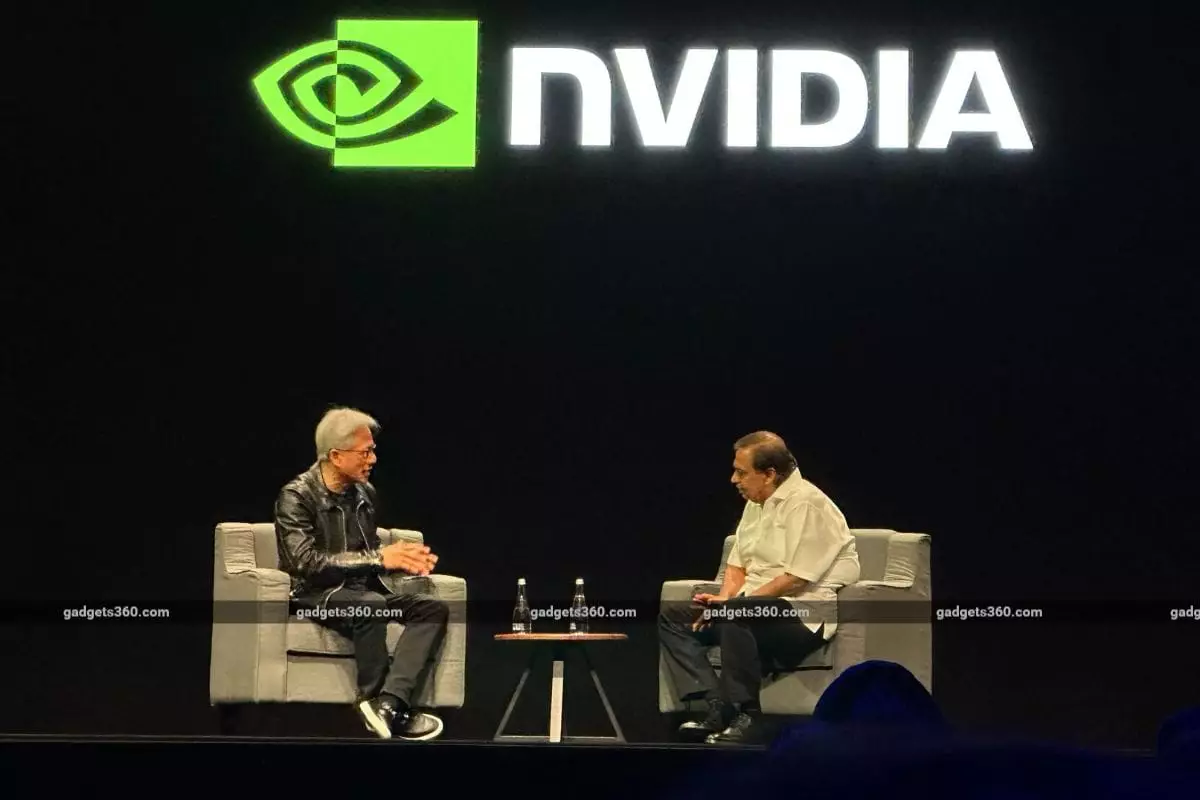The advancements in technology are rarely the product of isolated efforts; instead, they arise from a complex tapestry of global collaboration. On a recent visit to Hong Kong, Jensen Huang, the CEO of Nvidia, emphasized that fostering international partnerships in the realm of technology will remain paramount, regardless of any impending political changes in the United States. He addressed the persistent concerns surrounding export controls on advanced computing technologies, a move that was originally fueled by former President Trump’s national security strategy and has continued under President Biden’s administration. Huang’s optimism about the future echoes the sentiment that collaboration in science and mathematics is not only enduring but fundamental to societal progress. Indeed, he stated, “Open science in global collaboration has been around for a very long time,” highlighting its essential role in driving both social and scientific improvements.
In a world where regulations increasingly dictate the flow of technology, Huang acknowledged the dual challenge that companies like Nvidia face: navigating compliance while continuing to innovate. His assertion that Nvidia would strive to balance adherence to laws with an ongoing commitment to technological advancement reflects a pragmatic approach to an ever-evolving landscape. The unpredictability of international relations and trade policies could present significant hurdles. However, Huang’s confidence in the resilience of global cooperation offers hope for researchers and businesses across the globe who rely on American technological expertise. This balancing act is not just crucial for Nvidia but may also shape the broader technological environment as nations grapple with national security concerns versus the need for collaboration.
During the event at the Hong Kong University of Science and Technology, Huang claimed that “the age of AI has started,” marking what he considers a pivotal moment in the technological landscape. By harnessing the capabilities of artificial intelligence, he pointed to its potential to spark revolutionary changes across various industries, altering the trajectory of numerous scientific domains in profound ways. NVIDIA’s comprehensive innovations, predominantly led by the advancements in graphics processing units, have empowered this shift towards AI, placing the company at the forefront of what Huang deems “the most important technology of our time.” His visionary outlook suggests that the tools available to today’s graduates are nothing short of revolutionary, enabling them to tackle challenges once deemed insurmountable.
Huang’s address to aspiring engineers and technologists was not just a congratulatory speech; it served as a call to action. By expressing his desire to have begun his career amid today’s technological renaissance, he inspired graduates to recognize the unique opportunities available to them. The world is in a state of reset, he urged, encouraging the new generation to take charge and leverage their skills in a rapidly transforming industrial landscape. This message is particularly poignant as it aligns with the broader narrative of technological empowerment, inviting young innovators to push boundaries, explore uncharted territories, and engage collaboratively with their peers worldwide.
The discourse around technological advancement, compliance, and cooperation underscores a pivotal moment in history, as leaders like Jensen Huang guide both the industry and upcoming generations through the exhilarating and often unpredictable terrain of artificial intelligence.


Leave a Reply